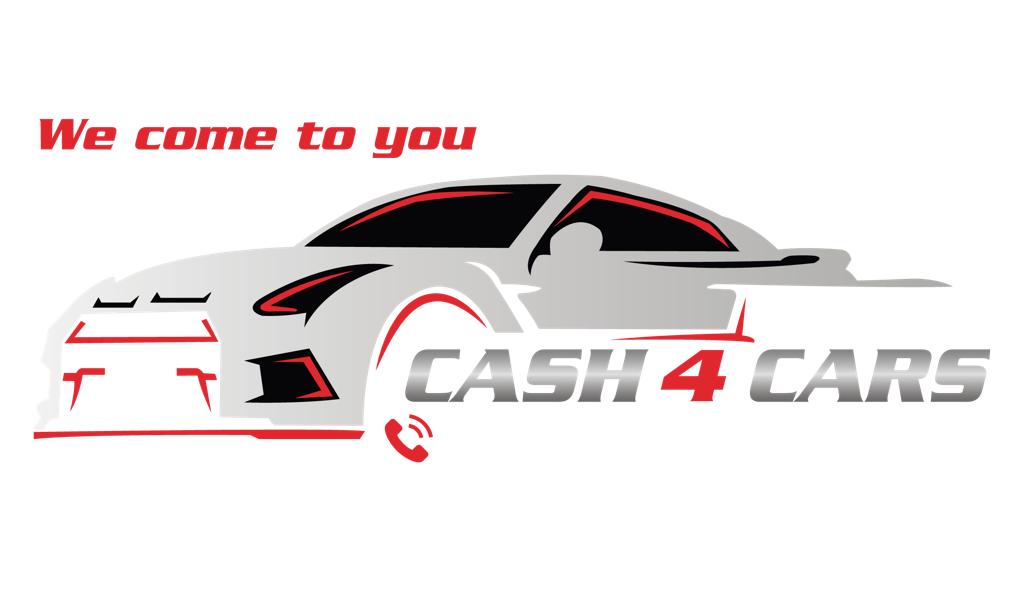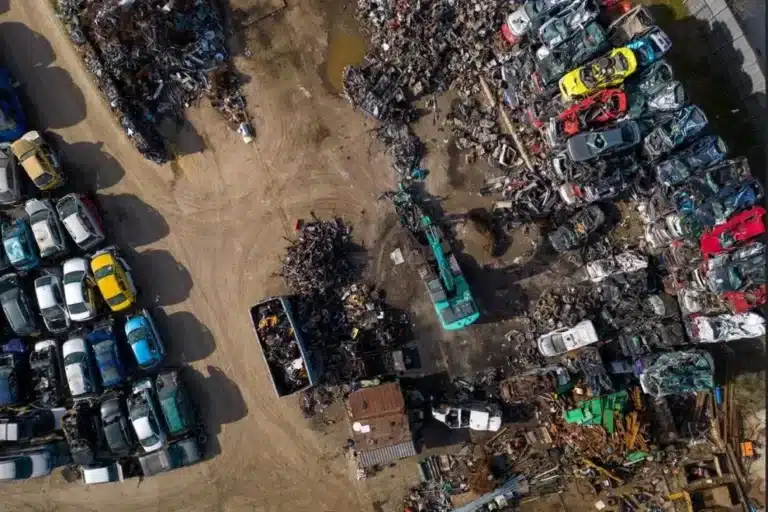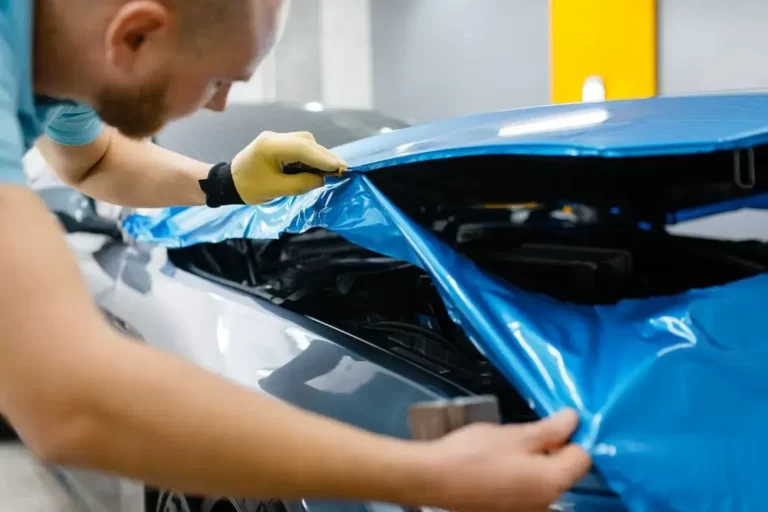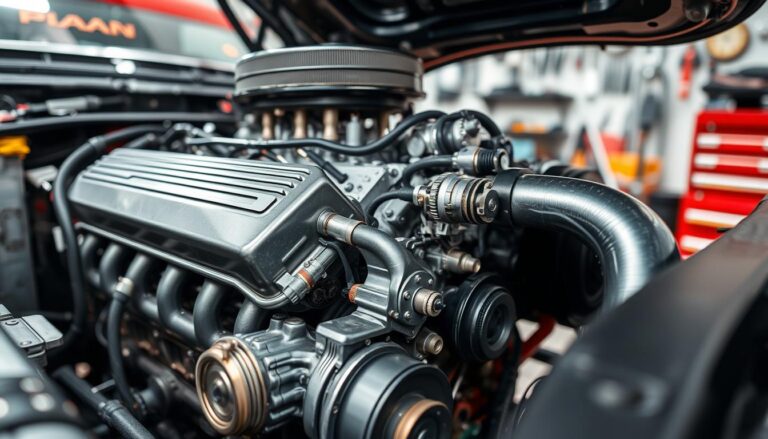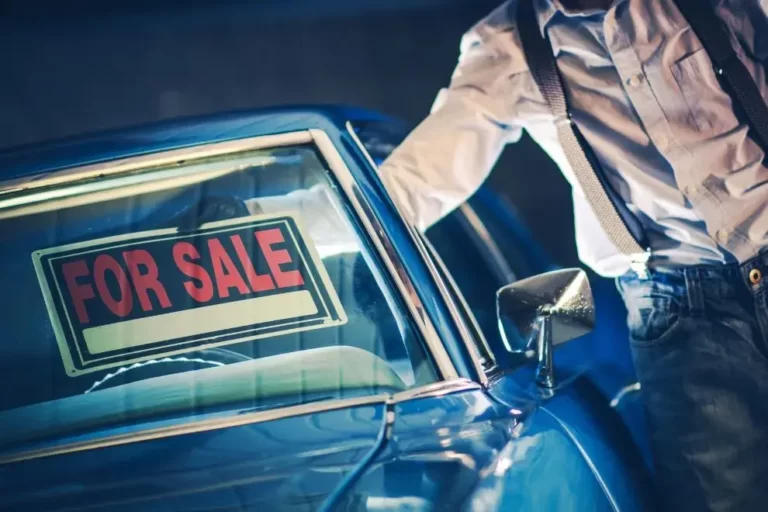How Much Is My Broken Car Worth
Estimating the value of a damaged car can be a complicated process, as it requires a comprehensive understanding of the current market, vehicle models, and their associated values. This article aims to provide valuable information to guide readers through this complex process and equip them with the best tools and resources to estimate the worth of their damaged vehicles.
Determining the value of a broken car may seem daunting; however, it can be manageable with proper guidance. By following straightforward steps such as researching comparable sale prices for similar vehicles or obtaining accurate estimates from reliable sources, readers can quickly determine whether they are getting fair value for their damaged cars.
Factors That Affect the Value of a Broken Car
When determining the value of a damaged car, several factors must be considered beyond the extent of the damage. The make and model of the car, its mileage, and accident history are all crucial factors that can affect its value.
Other factors that can impact the value of a damaged car include the availability of parts, local market demand, and the car’s overall condition. By considering these factors, you can obtain a more accurate estimate of your damaged car’s worth and make more informed decisions about selling it.
Researching Comparable Prices
Determining the worth of a damaged car can be challenging. First, one must evaluate the vehicle’s condition to identify which parts need replacing or repairing and estimate the associated costs. Moreover, it is crucial to compare similar models to determine the demand for such vehicles, particularly those that need to be in working order.
This information will give you an idea of how much you should expect to receive from buyers interested in your damaged car. Estimating its value by considering all these factors will help you obtain a more accurate picture of your car’s worth. Creating a fair price for your damaged car requires patience and research, but being informed about market trends can make it easier to decide on a fair deal.
Obtaining Accurate Estimates
Accurately estimating the worth of a damaged car requires research and knowledge. Several steps should be taken to ensure that you get an accurate estimate.
The first step is to assess the damage done to your vehicle and any parts that may need replacing or repair. This will give you an idea of how much it would cost to fix up the car versus selling it for scrap value. Review the sale prices of similar cars in recent auctions or private sales; this can help inform your decision on whether it’s better to sell or repair.
Once you’ve obtained some estimates, start negotiating offers with potential buyers and reviewing paperwork related to any sale agreement. Be sure to check all documents thoroughly before signing them so there are no surprises down the line. Remember that getting an offer is binding once all necessary paperwork has been completed.
Take your time and make sure everything is correct! Also, consider if taking the car off-road is a viable solution instead of selling it outright; depending on where you live, this could save you money in taxes and other fees associated with a traditional sale.
It’s essential to do your due diligence when assessing your damaged car’s worth; researching market trends, conducting proper inspections, and negotiating reasonable offers are vital components in achieving a fair price for both parties involved. Ensure that all deal conditions are written before finalizing any transaction, and seek legal advice from experts if needed.
Considering Salvage Value
When determining the value of a damaged car, assessing the damage and evaluating the condition are critical components. An important factor when considering salvage value is the extent of repairs needed for the vehicle to become operational again.
Suppose repair costs exceed the market price of similar cars in good condition. In that case, selling parts from the damaged vehicle may be more profitable than attempting to fix and resell it as-is.
Similarly, certain safety features need replacing or updating before public road operations. In that case, these should be considered when deciding how much money can be made by breaking down a broken car instead of repairing it.
In some cases, even if all necessary repairs have been completed successfully, potential buyers will still be bold in investing in a used car due to concerns about reliability or hidden issues that could arise later.
To maximize profit when disposing of a wrecked automobile, you must weigh all factors carefully, including what other vehicles like yours are going for in current markets, so you don’t leave any money on the table.
Determining the Worth of a Non-Running Vehicle
Non-running vehicles may still have value, even if they cannot be driven. To determine their worth, consider the condition of the car’s parts, which may be valuable to potential buyers seeking replacements or spares.
It’s also essential to assess the car’s overall condition, as vehicles with less damage or wear may fetch a higher price than those in poor condition. Researching the demand for specific makes and models in your local market can also help you determine how much your non-running car is worth.
Importance of Vehicle History
When estimating the value of a broken car, it’s crucial to consider its history. A vehicle’s history can include details about past accidents, maintenance records, and any previous ownership changes. This information is essential as it can provide insight into how well the car has been maintained and any potential issues that may arise in the future. When selling a broken car, be prepared to disclose the vehicle’s history to potential buyers, as this transparency can help build trust and improve your chances of securing a fair deal.
Looking At Recent Auction Results
Considering the salvage value of a broken car, it is necessary to examine recent auction results to determine its worth. Examining market forces and considering trends can indicate what your car may be valued at.
It is important to remember that several factors come into play when determining the price that will be paid for a damaged vehicle.
The current market conditions will have a major impact on how much you can expect from the sale of your car. Factors such as the age of the vehicle, its condition, any repairs needed or modifications made, and even geographical location could all influence the ultimate sale price.
Many buyers will also look at reviews or ratings from other users who have bought similar vehicles to compare prices and make informed decisions about their purchase.
Auction sites are one way to gauge potential values for your broken car. These platforms connect sellers with buyers looking for specific models and offer real-time bidding opportunities so that both parties can better understand where the market lies for particular types of cars.
By researching recent sales activity online, you can gain valuable insight into how much money people are willing to pay for cars like yours in similar condition.
Considering this data gives you an idea of what kind of deal you can secure if you sell your vehicle through an auction site.
Taking Into Account The Cost Of Repairs
It is important to consider the cost of repairs when considering how much a broken car may be worth. To assess this, one should review maintenance records and compare quotes from repair shops. This will give an understanding of what needs to be done and its potential cost.
In terms of reviewing maintenance records:
- Check for any recent work done on the vehicle that may have been necessary due to wear or tear;
- Identify any parts that may need replacing to get the car back up and running;
- Determine if any other areas require further inspection or attention.
When obtaining quotes from repair shops, consider these factors:
- Get at least three different estimates;
- Ask about their experience with similar vehicles;
- Read reviews online from past customers.
Considering all of this information, you can make an informed decision about how much your broken car is worth. It’s also helpful to research the current market prices for similar models.
Knowing the condition of your car, as well as its estimated value, will help you decide whether repairing it would be worthwhile or not.
Legal Considerations When Selling a Broken Car
Selling a broken car comes with legal considerations that sellers should be aware of. Transferring ownership, canceling insurance, and complying with local laws and regulations are all critical factors to consider when selling a broken car.
It’s important to ensure that all necessary paperwork is completed accurately and in a timely manner to avoid any legal issues down the line.
Sellers should be aware of their liability after selling the broken car and take steps to protect themselves.
Some of the key legal considerations to keep in mind when selling a broken car include the following:
- Transferring ownership: When selling a broken car, it’s important to transfer ownership to the buyer to avoid any legal liability for the vehicle. This typically involves completing a bill of sale and signing over the title to the new owner. Depending on the state and local laws, specific requirements for transferring ownership of a broken car may exist.
- Canceling insurance: Sellers should contact their insurance provider to cancel or transfer the policy to a new vehicle. It’s important to make sure that the insurance is canceled on the day of the sale to avoid any gaps in coverage.
- Complying with local laws and regulations: Depending on where the seller is located, specific laws and regulations may need to be followed when selling a broken car. For example, some states require that the seller disclose the car’s condition or obtain a salvage title before selling the vehicle.
- Protecting yourself from liability: Even after the sale is completed, the seller may still be liable for any accidents or injuries resulting from the broken car. To protect themselves from liability, sellers should make sure that they properly transfer ownership and cancel their insurance. It’s also a good idea to include a release of liability clause in the bill of sale to ensure that the buyer assumes full responsibility for the vehicle after the sale.
By understanding these legal considerations, sellers can avoid any legal issues and ensure that the sale of their broken car goes smoothly. It’s also a good idea to consult with a legal professional to ensure that all necessary paperwork and legal requirements are met.
Where to Find Potential Buyers for a Broken Car
Selling a broken car can be challenging, but several options are available for finding potential buyers. Online marketplaces such as Craigslist, Facebook Marketplace, and eBay Motors can be a good place to start, as they allow you to list your car for sale and reach a broad audience.
Local salvage yards and car removal services may be interested in purchasing your car for its scrap value. You can also contact local mechanics and repair shops to see if they want to purchase your car for its parts.
Negotiating a Fair Price
When selling a broken car, it’s essential to negotiate a fair price with potential buyers. This can be achieved by having a thorough understanding of the vehicle’s value based on factors such as its make, model, condition, and demand. Being informed about these aspects will provide you with a solid foundation for negotiations.
When negotiating with potential buyers, be prepared to answer questions about the car’s history, repairs needed, and any other issues. Honesty and transparency are crucial during this process. They can help build trust with the buyer and improve the chances of a successful sale.
It’s also essential to be patient and open to negotiation. While you may have a price in mind, it’s important to consider reasonable counteroffers from interested buyers. Be willing to compromise and find a mutually beneficial agreement that satisfies you and the buyer.
Consulting Professional Appraisers
When it comes to assessing the value of a broken car, determining its condition is vital. An accurate assessment requires significant effort to identify potential damage and associated repair costs. In some cases, this can be done through an inspection by a professional mechanic or automobile appraiser.
The inspection involves evaluating both the visible and internal components of a vehicle. External features such as dents, scratches, rust spots, and other blemishes are assessed for their influence on overall condition.
Internal systems like brakes, suspension, and engine parts must also be checked to determine if they need repairs or replacement. By thoroughly inspecting all aspects of the car, valuable insight into its actual condition can be gained.
Once the level of disrepair has been determined, it’s essential to consult with professionals who can provide an expert opinion regarding the car’s worth.
Professional appraisers have expertise in valuing vehicles based on make, model year, mileage, and current market conditions. Their advice should always be taken seriously when deciding how much a damaged car is worth.
Tips for Negotiating the Sale of a Broken Car
Negotiating the sale of a broken car can be a complex process. Still, several tips can help you navigate the process successfully. First, be prepared to negotiate and set a realistic price for your car based on its condition and market value. It’s also good to obtain multiple offers from different buyers to compare and choose the best deal.
When negotiating, be honest about the condition of your car and provide as much information as possible to potential buyers. Be prepared to answer questions and address concerns that they may have.
Finally, know when to leave a deal if it doesn’t feel right or you’re not getting a fair price.
Maximizing the Sale Value
While selling a broken car can be difficult, there are ways to maximize the value you receive. Following these tips could increase the sale price and improve the overall experience.
- Research similar vehicles: Check online listings, forums, and automotive websites to see what damaged cars of similar make, model, and condition have sold recently. This information can help you determine a fair asking price.
- Clean the vehicle: Even if your car is broken, it’s essential to present it in the best possible light. Cleaning the interior and exterior can significantly affect the buyer’s perception of the vehicle.
- Organize all paperwork and service records: All relevant documentation, including the vehicle’s title, service records, and any receipts for repairs or upgrades, can make the sale process smoother and more appealing to potential buyers.
- Consider parting out the vehicle: If the broken car has valuable parts or components, you may be able to sell these items separately to maximize your return. However, this can be time-consuming and requires knowledge of the parts’ value and demand.
- Be flexible with payment options: Offering multiple payment options, such as cash, cashier’s check, or electronic transfer, can make it easier for potential buyers to complete the transaction and may increase the likelihood of a successful sale.
- Highlight any valuable features: If your broken car has any unique or desirable features, such as a rare trim package, upgraded components, or a sought-after engine, be sure to emphasize these aspects in your advertisement and during negotiations.
By following these tips and maintaining a patient, transparent, and professional approach, you can maximize the value of your broken car and ensure a successful sale.
Conclusion
It is essential to consider various factors when determining the worth of a broken car. Researching comparable prices, obtaining accurate estimates, considering salvage value, looking at recent auction results, and considering the cost of repairs are all essential steps in creating an appropriate figure.
Consulting professional appraisers can also provide valuable insight for those needing to be more experienced to determine their vehicle’s worth accurately. Understanding how much a broken car is worth requires careful consideration and research.
Frequently Asked Questions
Q: What does “How Much Is My Broken Car Worth” mean?
A: This means determining the value of your car, even if it is not in perfect condition, to sell it for cash potentially.
Q: Can I sell my broken car for cash?
A: Many companies and services will give you cash for your broken car.
Q: What if my car is not running and needs to be towed?
A: Many car removal services will tow your broken car for free as part of their purchase agreement.
Q: How do I sell a broken car?
A: There are several ways to sell a broken car, such as contacting buyers directly or using online services specializing in buying cars in less-than-perfect condition.
Q: What is the process of selling a broken car for cash?
A: Typically, you would start by requesting a cash quote for your car. If the offer is acceptable, arrangements will be made for pick-up and payment.
Q: Can I get instant cash for my broken car?
A: Depending on the service, it is possible to receive instant cash once the purchase agreement has been made.
Q: How much money can I make from selling a broken car?
A: The amount offered for a broken car will vary depending on its make and model, condition, and market value.
Q: Is selling a car that needs significant repairs still possible?
A: Yes, selling a car in less-than-perfect condition is possible, even if it needs significant repairs.
Q: Can I get rid of my broken car for free?
A: Many car removal services will tow away your broken car for free as part of their purchase agreement.
Q: Is it worth selling a broken car, or is it better to try and fix it?
A: This will depend on the specific situation and the value of your car. It may be worth obtaining a cash quote for your broken car to determine whether it’s worth fixing or getting rid of.
